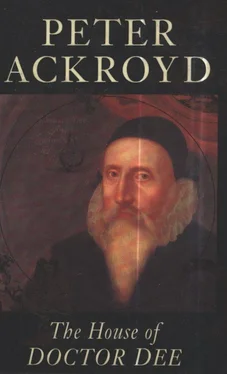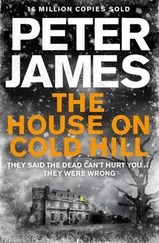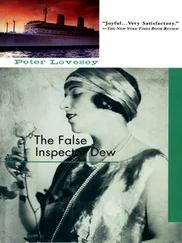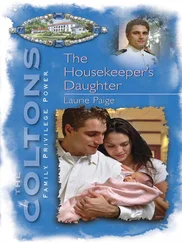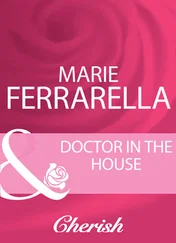Peter Ackroyd - The house of Doctor Dee
Здесь есть возможность читать онлайн «Peter Ackroyd - The house of Doctor Dee» весь текст электронной книги совершенно бесплатно (целиком полную версию без сокращений). В некоторых случаях можно слушать аудио, скачать через торрент в формате fb2 и присутствует краткое содержание. Город: London, Год выпуска: 1993, ISBN: 1993, Жанр: Историческая проза, на английском языке. Описание произведения, (предисловие) а так же отзывы посетителей доступны на портале библиотеки ЛибКат.
- Название:The house of Doctor Dee
- Автор:
- Жанр:
- Год:1993
- Город:London
- ISBN:9780241125007
- Рейтинг книги:5 / 5. Голосов: 1
-
Избранное:Добавить в избранное
- Отзывы:
-
Ваша оценка:
- 100
- 1
- 2
- 3
- 4
- 5
The house of Doctor Dee: краткое содержание, описание и аннотация
Предлагаем к чтению аннотацию, описание, краткое содержание или предисловие (зависит от того, что написал сам автор книги «The house of Doctor Dee»). Если вы не нашли необходимую информацию о книге — напишите в комментариях, мы постараемся отыскать её.
The house of Doctor Dee — читать онлайн бесплатно полную книгу (весь текст) целиком
Ниже представлен текст книги, разбитый по страницам. Система сохранения места последней прочитанной страницы, позволяет с удобством читать онлайн бесплатно книгу «The house of Doctor Dee», без необходимости каждый раз заново искать на чём Вы остановились. Поставьте закладку, и сможете в любой момент перейти на страницу, на которой закончили чтение.
Интервал:
Закладка:
'But don't you see the wilderness of it?'
'No. Not really. You may see the stone, but I see the people. Why do you think I'm writing my book?' This book, upon which he had been working ever since I had known him, was to be a history of London radicalism. He had explained it to me once, in his usual embarrassed dismissive way, but all the Muggletonians, and Ranters, and Behmenists, and members of the London Corresponding Society, confused me and seemed to become members of one vast sect or community. But this was his great theme — this fastidious, delicate man was obsessed by the aspirations of some disturbed, even dangerous, Londoners. Once he took me on a tour of the taverns and meeting-houses which they had used; only a few survived, mainly in the east of London by Limehouse and Shadwell, and they looked so insignificant, so grubby, that it was hard to imagine the visions and dreams that had been conjured up within them. The Behmenists believed, as far as Daniel could explain it to me, that men and women carried the heavens within them and that the universe itself was in the shape of a single person; he was known as Adam Kadmon, or the Universal Man. They did not necessarily believe that the entire cosmos was in fact a human form — although there were some radical Swedenborgians who proclaimed that there was just such a correspondence — but rather that the world, and the entire universe of being, was infused with the qualities of humanity. We had come up to the Seven Stars in Arrow Lane, where some Moravians used to meet in the early eighteenth century, and Daniel told me the story of the mystic who was continually asked by a small girl to show her angels. At last he agreed to do so and, taking her into his house, led her over towards a curtained recess. 'Do you really wish to see an angel?' he asked her. She was still very eager, so he pulled back the curtain and, on the wall behind it, was a mirror. 'Look there,' he said. 'There is an angel.'
'It's a charming story, Matthew, don't you think?'
'Oh, yes.'
'But do you understand how radical it is? The humblest person can be filled with grace. Divinity is within us, and there is no sin. There is no heaven, no hell.'
Why should such strange doctrines emerge in this city? This was the question he posed to me as we walked down Shadwell Reach. The answer seemed obvious enough: this was the area where artisans and small tradesmen were to be found in the largest numbers, and they were the ones most prone to this form of madness. And yet Daniel seemed to believe that it had something to do with the spirit of the place itself. But I had seen enough. Limehouse was filled with the fumes of traffic, with smoke, with the debris of unfinished buildings; I found it hard to get my breath, but I managed to drag him away to the upper level of the Docklands Light Railway. That was the end of our journey in search of what he called the 'everlasting gospel'.
There was also the time he drove me to the south-west of England, and to the old radical centre of Glastonbury. A fourteenth-century London sect, God's Brothers, as they called themselves, had fled from persecution in the city and established a community in that area. We must have chosen the worst day of the year for such a journey — from London to Andover we were buffeted by rainstorms, and then on the way from Hampshire we were caught in a thick fog which hovered along the motorway. We crept towards Glastonbury, since the road was hardly visible; the posts along the route looked like sentinels huddled in their clothes, while the pylons seemed to be the spires of churches rising out of the mist. There were clumps of trees in one field that we passed, and they might have been the members of some small congregation struggling onward. No doubt these are the materials out of which local legends and 'sightings' are manufactured, but all I could think of was the warmth and safety of London. There were no remnants of the old community when eventually we arrived in Glastonbury itself, and the area which they had colonized was an industrial estate — we should have guessed as much, but Daniel was oddly silent during the return journey. The fog had lifted by the time we came home; it was late in the evening, and I knew that we were approaching London from the diffused red light in the sky which blotted out all the stars. It was as if we were returning to a furnace, and I was at peace.
I came out from New Oxford Street into Tottenham Court Road just as the clock of St Giles-in-the-Fields struck the hour; I walked more quickly here, since in the porches and doorways along the street lay the army of the night. I was afraid of them, these men and women huddled in filthy blankets, but it is not simply the vagrant or the homeless who disturb me. I know very well that I turn away from any kind of human extremity. I turn away from suffering. Now as I crossed the street and glanced towards two piles of clothes stirring uneasily in the night air, I was afraid of dirt, and of disease, but I suppose that I was most afraid of being attacked. What had they got to lose? If I were like them, I would scream against the world and burn the city. I would want to destroy everything, and everyone, that had conspired against me. I would pillage the shops which denied me entrance, and break up the restaurants which denied me food. I would even rage against the street-lamps which displayed me to the enemy. Yet, as I walked by, none of them asked me for anything, or spoke, or looked at me; I might have been part of some other world. Were they truly resigned, patient, uncomplaining — or were they waiting for something, like the Moravians who met in the Seven Stars?
No, there was this difference. The city had grown immeasurably larger and, as it expanded in every direction, its inhabitants had become more passive and docile; these people who slept upon its streets were true and faithful citizens, but vast London had by some alchemy drained away their spirit. I looked down Tottenham Court Road and, not for the first time, noticed the silence and over-brightness of the city at night. Two centuries ago these streets would have been darker, more malodorous, more treacherous, and they would have been filled with cries, and screams, and laughter. But now as I stood with the homeless around me, all I could hear was the vague hum of the neon street-lamps and the gusting of the wind around Centre Point. Why was it that, in a place such as this, all the natural sounds seemed fabricated and unreal, while the artificial noise seemed most natural? This city was too bright because it was celebrating its own triumph. It had grown steadily larger by encroaching upon, and subduing, the energy of its inhabitants. They hardly moved as I made my way towards Charlotte Street.
I turned the corner, and saw at once that there was a globe shining at one end of the thoroughfare. Of course there was another reason for this constant and ubiquitous brightness: these signs and emblems, shining out into the darkness, were also ways of evading death and the knowledge of death. They celebrated a kind of artificial life, in which the spiritual world was obliterated. It was peculiar — it was something my father might have said. But these were my own night thoughts.
The globe brightened the surrounding air, and Charlotte Street was very still. It was a vision of the world and truly of the world since, as I walked closer, I could see that it was a neon representation of the earth with the continents picked out in variously coloured lights. There was a sign beneath it, 'The World Turned Upside Down'; it was a bar, or night-club, and a row of metal stairs led precipitously from the street to a small basement area and a closed door. There was a light shining behind it and, as I looked down, the area was suddenly illuminated when the door swung open. A woman came out and stood upon the threshold, but there was so much light behind her that I could only see her shape and the outline of her hair; still, I was interested. I stepped back into the shadows of the street as she climbed the stairs; her heels rang out on the metal, creating an echo which stopped abruptly when she stepped on to the pavement. She looked around uncertainly, as if she were waiting for a taxi; then she turned her face towards me, and I put up my hand in surprise and horror. It was Daniel Moore. I saw him plainly. I knew his face, beneath the make-up. He had placed a large blonde wig on his thinning hair, and he was wearing a red dress. I could even smell the perfume of violets. But it was Daniel. He had not noticed me, because now he turned his head and began walking slowly towards Fitzroy Square. It was a casual walk, nothing like his usual nervous pace, and he seemed quite content to enjoy the sensations of the London night. I stood there, in the doorway of a shop, bewildered. I could think of nothing. I just stared and stared at the bright globe of the world turned upside down.
Читать дальшеИнтервал:
Закладка:
Похожие книги на «The house of Doctor Dee»
Представляем Вашему вниманию похожие книги на «The house of Doctor Dee» списком для выбора. Мы отобрали схожую по названию и смыслу литературу в надежде предоставить читателям больше вариантов отыскать новые, интересные, ещё непрочитанные произведения.
Обсуждение, отзывы о книге «The house of Doctor Dee» и просто собственные мнения читателей. Оставьте ваши комментарии, напишите, что Вы думаете о произведении, его смысле или главных героях. Укажите что конкретно понравилось, а что нет, и почему Вы так считаете.
